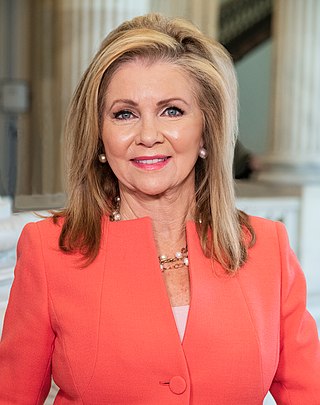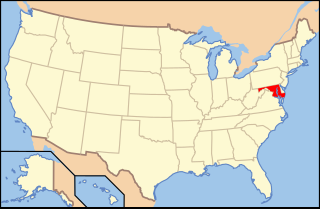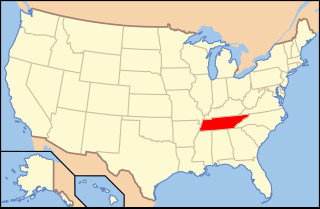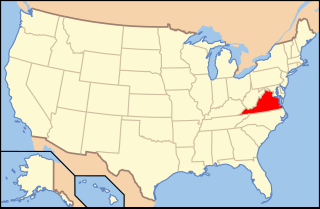The Communications Decency Act of 1996 (CDA) was the United States Congress's first notable attempt to regulate pornographic material on the Internet. In the 1997 landmark case Reno v. ACLU, the United States Supreme Court unanimously struck the act's anti-indecency provisions.

Mary Marsha Blackburn is an American politician and businesswoman serving as the senior United States senator from Tennessee. Blackburn was first elected to the Senate in 2018. A member of the Republican Party, Blackburn was a state senator from 1999 to 2003 and represented Tennessee's 7th congressional district in the United States House of Representatives from 2003 to 2019, during which time the National Journal rated her among the House's most conservative members.
An age verification system, also known as an age gate, is any technical system that externally verifies a person's age. These systems are used primarily to restrict access to content classified, either voluntarily or by local laws, as being inappropriate for users under a specific age, such as alcohol, tobacco, gambling, video games with objectionable content, pornography, or to remain in compliance with online privacy laws that regulate the collection of personal information from minors, such as COPPA in the United States.

Lesbian, gay, bisexual and transgender (LGBT) rights in the United States rank among the most advanced in the world, with public opinion and jurisprudence changing significantly since the late 1980s.
In the United States, internet censorship is the suppression of information published or viewed on the Internet in the United States. The First Amendment of the United States Constitution protects freedom of speech and expression against federal, state, and local government censorship.

Section 230 is a section of Title 47 of the United States Code that was enacted as part of the Communications Decency Act of 1996, which is Title V of the Telecommunications Act of 1996, and generally provides immunity for online computer services with respect to third-party content generated by its users. At its core, Section 230(c)(1) provides immunity from liability for providers and users of an "interactive computer service" who publish information provided by third-party users:
No provider or user of an interactive computer service shall be treated as the publisher or speaker of any information provided by another information content provider.

Lesbian, gay, bisexual, and transgender (LGBT) people in the U.S. state of Florida have federal protections, but many face legal difficulties on the state level that are not experienced by non-LGBT residents. Same-sex sexual activity became legal in the state after the U.S. Supreme Court's decision in Lawrence v. Texas on June 26, 2003, although the state legislature has not repealed its sodomy law. Same-sex marriage has been legal in the state since January 6, 2015. Discrimination on account of sexual orientation and gender identity in employment, housing and public accommodations is outlawed following the U.S. Supreme Court's ruling in Bostock v. Clayton County. In addition, several cities and counties, comprising about 55 percent of Florida's population, have enacted anti-discrimination ordinances. These include Jacksonville, Miami, Tampa, Orlando, St. Petersburg, Tallahassee and West Palm Beach, among others. Conversion therapy is also banned in a number of cities in the state, mainly in the Miami metropolitan area, but has been struck down by the 11th Circuit Court of Appeals. In September 2023, Lake Worth Beach, Florida became an official "LGBT sanctuary city" to protect and defend LGBT rights.

Lesbian, gay, bisexual, and transgender (LGBT) people in the U.S. state of Maryland enjoy the same rights as non-LGBT people. The state's anti-sodomy provisions were ruled unconstitutional in 1999 and repealed by the state's legislature in 2023. Maryland has had statewide protections against discrimination based on an individual's sexual orientation since 2001 and gender identity since 2014. Legislation to legalize same-sex marriage in Maryland was approved by voters on November 6, 2012 and went into effect on January 1, 2013. Today, the state of Maryland is regarded as one of the most LGBT-friendly states in the country, with a 2022 Public Religion Research Institute showing that 87% of Marylanders support LGBTQ anti-discrimination laws. Additionally, a ban on conversion therapy on minors became effective on October 1, 2018. In October 2020, Montgomery County passed unanimously an ordinance that implemented an LGBTIQ+ bill of rights.

Lesbian, gay, bisexual, and transgender (LGBT) people in Texas have some protections in state law but may face legal and social challenges not faced by others. Same-sex sexual activity was decriminalized in Texas in 2003 by the Lawrence v. Texas ruling. On June 26, 2015, the Supreme Court of the United States ruled bans on same-sex marriage to be unconstitutional in Obergefell v. Hodges.

Lesbian, gay, bisexual, and transgender (LGBT) people in Tennessee may experience some legal challenges that non-LGBT residents do not. Same-sex sexual activity has been legal in the state since 1996. Marriage licenses have been issued to same-sex couples in Tennessee since the Supreme Court ruling in Obergefell v. Hodges on June 26, 2015.

Lesbian, gay, bisexual, and transgender (LGBT) people in the Commonwealth of Virginia enjoy the same rights as non-LGBT people. LGBT rights in the state are a recent occurrence with most improvements in LGBT rights occurring in the 2000s and 2010s. Same-sex marriage has been legal in Virginia since October 6, 2014, when the U.S. Supreme Court refused to consider an appeal in the case of Bostic v. Rainey. Effective July 1, 2020, there is a state-wide law protecting LGBT persons from discrimination in employment, housing, public accommodations, and credit. The state's hate crime laws also now explicitly include both sexual orientation and gender identity.

FOSTA and SESTA are U.S. Senate and House bills which became law on April 11, 2018. They clarify the country's sex trafficking law to make it illegal to knowingly assist, facilitate, or support sex trafficking, and amend the Section 230 safe harbors of the Communications Decency Act to exclude enforcement of federal or state sex trafficking laws from its immunity. Senate sponsor Rob Portman had previously led an investigation into the online classifieds service Backpage, and argued that Section 230 was protecting its "unscrupulous business practices" and was not designed to provide immunity to websites that facilitate sex trafficking.

TikTok, whose mainland Chinese counterpart is Douyin, is a short-form video hosting service owned by Chinese internet company ByteDance. It hosts user-submitted videos, which can range in duration from three seconds to 60 minutes. It can be accessed with a smart phone app.
Censorship of LGBT issues is practised by some countries around the world. They may take a variety of forms, including anti-LGBT curriculum laws in some states of the United States, the Russian gay propaganda law, and the Hungarian anti-LGBT law, and laws in Muslim-majority states such as Afghanistan, Saudi Arabia, Pakistan, and Malaysia prohibiting advocacy that offends Islamic morality.

The EARN IT Act is a proposed legislation first introduced in 2020 in the United States Congress. It aims to amend Section 230 of the Communications Act of 1934, which allows operators of websites to remove user-posted content that they deem inappropriate, and provides them with immunity from civil lawsuits related to such posting. Section 230 is the only surviving portion of the Communications Decency Act, passed in 1996.
There is evidence that TikTok has down-weighted the posts of topics deemed sensitive by the Chinese government and Chinese Communist Party. Topics alleged to have been censored by the platform include the Persecution of Uyghurs in China, the 2019–2020 Hong Kong protests, the Sino-Indian border dispute, foreign political leaders, LGBTQ+ people, disabled people, and people of African descent. TikTok has also removed or omitted information from its services to comply with company policies, legal demands, and government censorship laws. TikTok's responses to claims of censorship have varied, responding that the platform was attempting to protect users from bullying, arguing that certain instances were the result of human error, and stating that such incidents were the result of algorithmic mistakes.

The Online Streaming Act, commonly known as Bill C-11, is a bill introduced in the 44th Canadian Parliament. It was first introduced on November 3, 2020, by Minister of Canadian Heritage Steven Guilbeault during the second session of the 43rd Canadian Parliament. Commonly known as Bill C-10, the bill was passed in the House of Commons on June 22, 2021, but failed to pass the Senate before Parliament was dissolved for a federal election. It was reintroduced with amendments as the Online Streaming Act during the first session of the 44th Canadian Parliament in February 2022, passed in the House of Commons on June 21, 2022, and passed in the Senate on February 2, 2023. It received royal assent on April 27, 2023, after the consideration of amendments by the House.

The Online Safety Act 2023 is an act of the Parliament of the United Kingdom to regulate online speech and media. It passed on 26 October 2023 and gives the relevant Secretary of State the power, subject to parliamentary approval, to designate and suppress or record a wide range of speech and media deemed "harmful".
Since the passage of Florida's Parental Rights in Education Act, commonly known as the Don't Say Gay bill, The Walt Disney Company has been involved in a feud with Florida governor Ron DeSantis and the state's Republican Party. While initially a donor to some of the politicians who voted in favor of the Act, after its passage Disney spoke out against the bill and called for it to be repealed.

The Parental Rights in Education Act, commonly referred to as the "Don't Say Gay" law, is a Florida state law passed in 2022 that regulates public schools in Florida. The law is most notable for its controversial sections which prohibit public schools from having "classroom discussion" or giving "classroom instruction" about sexual orientation or gender identity from kindergarten through third grade or in any manner deemed to be against state standards in all grades; prohibits public schools from adopting procedures or student support forms that maintain the confidentiality of a disclosure by a student, including of the gender identity or sexual orientation of a student, from parents; and requires public schools to bear all the costs of all lawsuits filed by aggrieved parents.












